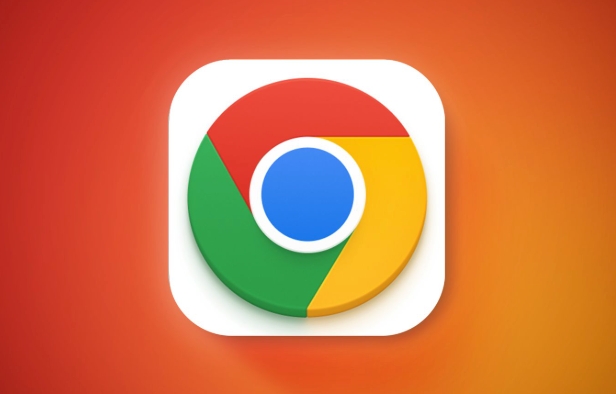Resetting Chrome settings can solve problems such as running stuttering, page loading exceptions, plug-in conflicts, etc. The specific steps are: Open Settings → Reset Settings → Confirm to restore the default value; Reset will remove the extension, clear the cache cookies (optional), restore the default search engine and turn off the content settings, but will not delete the bookmarks and passwords; Notes include reinstalling the plug-in, the homepage and search engine may reset to Google, and synchronizing the account data will not be affected; if the problem is still there, you can try to clean the cache, update the browser, check and kill malware, or create a new user profile.

If you're running stuttering, page loading exceptions, or plug-in conflicts, resetting your browser settings is usually an effective solution. It can restore the browser to its initial state, clearing custom configurations that may cause problems.

1. Why reset Chrome settings?
Sometimes we install a lot of extensions, change privacy settings, and even accidentally click on options for some unknown websites, which may affect the performance of the browser.
Resetting the settings won't delete your bookmarks and saved passwords (unless you choose on your own initiative), but it will:

- Remove all extensions
- Clear cache and cookies (optional)
- Restore the default search engine
- Close all content settings (such as pop-up permissions)
So if you find that your browser is slower, your homepage is changed, and there are more advertisements, you can consider this step.
2. How to reset settings in desktop version of Chrome?
The operation path is actually very simple, but many people don’t know where to hide it. Here are the specific steps:

- Open Chrome browser
- Click the three dots in the upper right corner → "Settings"
- Select "Reset Settings" in the left menu
- Click "Restore settings to original defaults"
- Click "Reset Settings" after the confirmation window pops up
This allows for a complete reset. Note: This operation cannot be cancelled. It is best to confirm that you do not need to retain certain advanced settings before executing.
3. What details should be paid attention to when resetting?
Although resetting itself is not complicated, there are several things that are easy to ignore:
- All extensions will be removed , including commonly used plug-ins such as ad blocking and password management, and they need to be reinstalled later.
- The default homepage and search engine may be changed back to Google . If you are used to using Baidu or Bing, remember to reset it.
- The synchronized account will not be affected . As long as you log in to your Google account, your bookmarks, history records, etc. will still be retained.
- If you are worried about data loss, you can manually export the bookmarks before resetting (Settings → Bookmarks → Export Bookmarks).
4. What if the problem remains after reset?
Some problems are not caused by settings, but are cache files corrupted, poor system compatibility or malware interference. At this time you can try:
- Clean browser caches and cookies (Settings → Privacy and Security → Clear browsing data)
- Update Chrome to the latest version
- Check the computer for malware
- Try creating a new user profile
If it still doesn't work, it may be a system-level problem and may require more in-depth investigation.
Basically that's it. Chrome's reset function is designed to be friendly. As long as it is not accidentally deleted important data, it will generally not cause too much trouble. The key is to understand its scope of influence before operation, and don’t click “Confirm” as soon as you come up, it will be too late.
The above is the detailed content of How to reset Google Chrome settings. For more information, please follow other related articles on the PHP Chinese website!

Hot AI Tools

Undress AI Tool
Undress images for free

Undresser.AI Undress
AI-powered app for creating realistic nude photos

AI Clothes Remover
Online AI tool for removing clothes from photos.

Clothoff.io
AI clothes remover

Video Face Swap
Swap faces in any video effortlessly with our completely free AI face swap tool!

Hot Article

Hot Tools

Notepad++7.3.1
Easy-to-use and free code editor

SublimeText3 Chinese version
Chinese version, very easy to use

Zend Studio 13.0.1
Powerful PHP integrated development environment

Dreamweaver CS6
Visual web development tools

SublimeText3 Mac version
God-level code editing software (SublimeText3)

Hot Topics
 Google Chrome Speed ??Browser Official Edition Portal
Jul 08, 2025 pm 02:30 PM
Google Chrome Speed ??Browser Official Edition Portal
Jul 08, 2025 pm 02:30 PM
Google Chrome is a free and fast multi-platform web browser developed by Google. It is known for its speed, stability and reliability. Chrome is based on the open source Chromium project and is widely used on devices such as desktops, laptops, tablets and smartphones. The browser has a clean interface and a wide range of customizable options, allowing users to personalize it according to their preferences. In addition, Chrome has a huge library of extensions that provide additional features such as ad blocking, password management and language translation, further enhancing the browsing experience.
 How to install Chrome extensions on mobile (Kiwi, etc.)
Jul 11, 2025 am 12:50 AM
How to install Chrome extensions on mobile (Kiwi, etc.)
Jul 11, 2025 am 12:50 AM
Android phones can install Chrome extensions through KiwiBrowser. KiwiBrowser is an open source browser based on Chromium on the Android side. It supports the installation of the Chrome Web Store extension. The process is: Open Kiwi and enter the Chrome store, search for extensions, and click "Add to Chrome" to complete the installation; when using it, you need to pay attention to network stability, extension compatibility, permission granting and installation quantity; other alternatives include FirefoxMobile and YandexBrowser, but Kiwi is still the most stable and convenient choice at present.
 How to change the user agent string in Safari without extensions?
Jul 11, 2025 am 12:48 AM
How to change the user agent string in Safari without extensions?
Jul 11, 2025 am 12:48 AM
On macOS, you can modify Safari's UserAgent through developer tools or terminals, but iOS/iPadOS does not support it. The specific methods are: 1. Use the developer tools to modify temporarily: select preset UA after enabling the development menu; 2. Permanent modification through the terminal: enter the command to write a custom UA; 3. iOS/iPadOS cannot be modified directly, and it needs to rely on a third-party application or browser.
 What firewall ports does Chrome Remote Desktop use
Jul 13, 2025 am 12:43 AM
What firewall ports does Chrome Remote Desktop use
Jul 13, 2025 am 12:43 AM
ChromeRemoteDesktopusesport443(HTTPS)astheprimaryportforsecureconnections,andoccasionallyport80(HTTP)asafallback.ItalsoleveragesSTUN,TURN,andICEprotocolstoestablishpeer-to-peerconnections,withTURNactingasarelayifdirectconnectionsfail.Toensuresmoothop
 How to translate a page in Google Chrome
Jul 03, 2025 am 12:14 AM
How to translate a page in Google Chrome
Jul 03, 2025 am 12:14 AM
The method of translating web pages by Chrome browsers is not limited to automatic prompts, but can also be manually operated and solved common problems. 1. The easiest way is to click "Translation" in the translation prompt bar that automatically pops up when opening a web page in a non-default language; 2. If the prompt does not pop up, you can click the three points on the right side of the address bar → select "Translation [Language] as [Language]" to trigger manually; 3. Check whether the translation function is enabled in the settings, some websites block translation or extend conflicts, you can try invisible mode or turn off the plug-in; 4. For content that is incompletely translated, you can refresh the page, change the network environment, or use third-party extensions such as "GoogleTranslate" to supplement; 5. Dynamically load the content and wait for a few seconds or interaction before it is translated.
 How to view chrome incognito history?
Jul 09, 2025 am 12:31 AM
How to view chrome incognito history?
Jul 09, 2025 am 12:31 AM
Chrome's incognito browsing history cannot be viewed directly, but it can be obtained indirectly through three methods. 1. Use command line tools to view the DNS cache, which can only obtain some domain name information and is not durable; 2. Check the router or network monitoring log, which requires certain network knowledge and depends on network settings; 3. Install third-party monitoring tools and configure in advance to record invisible browsing behavior. Overall, the invisibility mode is designed to protect privacy. All the above methods have limitations. It is recommended to choose whether to use monitoring methods based on actual needs.
 How to force quit Google Chrome on Mac
Jul 07, 2025 am 12:14 AM
How to force quit Google Chrome on Mac
Jul 07, 2025 am 12:14 AM
There are several ways to force exit from unresponsive Chrome on your Mac. First, use the keyboard shortcut Command Option Esc to open the "Force Exit Application" window, select Google Chrome and click "Force Exit". Second, click on the Apple menu, select "Force Exit", and select Chrome from the list and confirm quit. If Chrome completely freezes or consumes too much memory, you can open ActivityMonitor, find all Chrome-related processes, and click the X button one by one to end them. Finally, as an alternative, you can enter killallGoogle\Chrome in Terminal
 How to simulate different timezones in Chrome
Jul 13, 2025 am 12:19 AM
How to simulate different timezones in Chrome
Jul 13, 2025 am 12:19 AM
To test page behavior in different time zones in Chrome, there are three ways to do it. 1. Use ChromeDevTools to simulate the time zone: Open DevTools → Click on three points → MoreTools → Sensors, check the overlay option in the DateandTime section and select the target time zone. This setting only takes effect in the current session; 2. Specify the time zone through the command line startup parameters: close all Chrome instances and execute chrome.exe--timezone="target time zone" to affect the entire browser instance; 3. Use JavaScript to overwrite the behavior of the Date object, and the fixed time value is used to accurately control the JS time.






